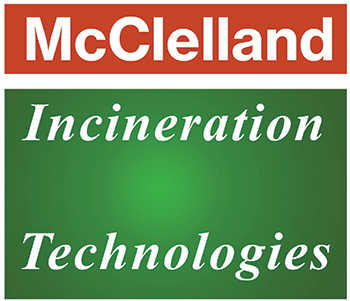 The waste management industry is undergoing a digital revolution. Traditional incinerator systems, while effective, are now evolving into “smart incinerators“—intelligent facilities that leverage the power of Artificial Intelligence (AI) and the Internet of Things (IoT) to achieve unprecedented levels of optimization, efficiency, and environmental performance. This technological leap is transforming waste treatment from a largely reactive process into a data-driven, predictive, and highly controlled operation.
The waste management industry is undergoing a digital revolution. Traditional incinerator systems, while effective, are now evolving into “smart incinerators“—intelligent facilities that leverage the power of Artificial Intelligence (AI) and the Internet of Things (IoT) to achieve unprecedented levels of optimization, efficiency, and environmental performance. This technological leap is transforming waste treatment from a largely reactive process into a data-driven, predictive, and highly controlled operation.
The Dawn of the Smart Incinerator
A smart incinerator is essentially a connected and intelligent waste-to-energy or waste-disposal plant. It integrates a vast network of sensors (IoT) throughout its various components, collecting real-time operational data. This continuous stream of data—on parameters like temperature, pressure, gas flow, emissions, waste feed rate, and fuel consumption—is then fed into AI-powered algorithms. These algorithms analyze the data, identify patterns, predict outcomes, and even make autonomous adjustments, transforming raw data into actionable insights and optimized performance.
IoT: The Sensory Network of the Smart Incinerator
The Internet of Things forms the sensory nervous system of a smart incinerator. Thousands of sensors are deployed across critical points:
Combustion Chamber: Monitoring temperatures, oxygen levels, and flame characteristics.
Boiler/Heat Recovery: Tracking steam production and heat exchange efficiency.
Air Pollution Control Systems (APCS): Measuring pollutant concentrations (e.g., NOx, SOx, particulates), reagent consumption, and filter performance.
Material Handling: Monitoring waste feed rates, bunker levels, and ash discharge.
Rotating Equipment: Sensors on fans, pumps, and motors for vibration and temperature to detect early signs of wear.
This vast network allows for real-time monitoring, enabling operators to see the “health” of the incinerator at any given moment, often from a centralized control room or even remotely.
AI: The Brain Behind the Optimization
Where IoT collects the data, AI provides the intelligence. AI algorithms, particularly machine learning models, analyze the massive datasets generated by IoT sensors to deliver transformative capabilities:
Predictive Maintenance: Instead of fixed maintenance schedules or waiting for breakdowns, AI analyzes vibration, temperature, and performance data to predict when components like refractory lining, bearings, or fan motors are likely to fail. This allows for proactive scheduling of maintenance during planned downtime, minimizing unexpected outages and reducing repair costs.
Optimized Combustion Efficiency: Waste composition can vary significantly. AI algorithms can learn these variations and, in real-time, adjust critical combustion parameters (e.g., air flow, fuel injection, grate speed) to maintain optimal burning conditions. This leads to more complete combustion, reduced auxiliary fuel consumption, and higher energy recovery rates.
Enhanced Emission Control: AI can fine-tune the operation of APCS components by analyzing incoming flue gas composition and adjusting reagent injection rates (e.g., lime for acid gas removal, activated carbon for heavy metals, ammonia/urea for NOx). This ensures that emission levels consistently remain below regulatory limits, often exceeding compliance requirements and minimizing reagent consumption.
Anomaly Detection & Troubleshooting: AI can detect subtle deviations from normal operating patterns that might indicate an emerging problem long before it escalates into a major fault. This proactive alerts operators to potential issues, facilitating faster troubleshooting and preventing costly damage.
The Benefits: Efficiency, Compliance, and Sustainability
The synergy of AI and IoT in smart incinerators yields a multitude of benefits for industrial waste treatment:
Increased Operational Efficiency: Optimized fuel consumption, higher energy recovery, and streamlined processes.
Reduced Operational Costs: Lower fuel bills, reduced maintenance expenses due to predictive interventions, and minimized downtime.
Improved Environmental Performance: More stable and complete combustion leads to lower emissions, while optimized APCS ensure cleaner discharge.
Enhanced Safety: Proactive identification of potential equipment failures reduces risks to personnel.
Better Regulatory Compliance: Consistent and optimized operations ensure continuous adherence to strict environmental regulations.
At Mc Clelland Engineers Pvt. Ltd., we are embracing the future of waste treatment by integrating cutting-edge digital technologies into our solutions. As a leading incinerator manufacturer since 1985, we are developing advanced incineration and thermal desorption systems that leverage AI and IoT to offer unparalleled levels of optimized waste treatment and efficiency. Our commitment to innovation ensures that our incinerators are not just robust and compliant, but also intelligent and future-ready. You can explore our forward-thinking incinerator solutions by visiting our official website, https://mcclellandindia.com/.
We are dedicated to empowering industries with smart, sustainable, and highly efficient waste management tools, ensuring not only operational excellence but also a significant contribution to environmental stewardship. Discover more about our manufacturing capabilities and product range that are shaping the next generation of intelligent waste management at https://incineratormanufacturer.com/.
Powering a Smarter, Cleaner Future
Smart incinerators represent a significant leap forward in waste management. By harnessing the analytical power of AI and the real-time connectivity of IoT, they are paving the way for a future where waste treatment is not only efficient and compliant but also intelligently optimized for maximum performance and minimal environmental footprint.

